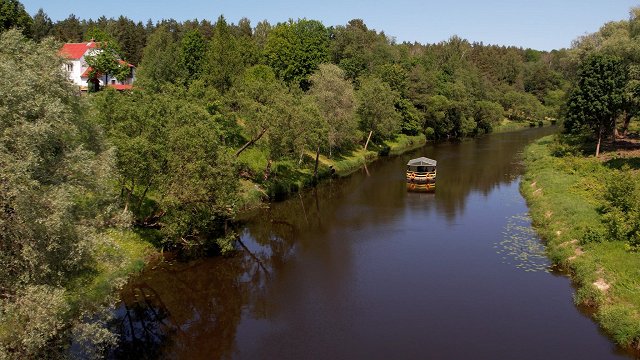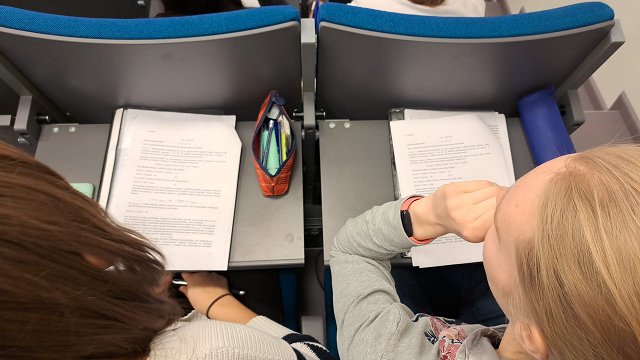“Grupeer” was founded as a meeting place for investors and lending companies. The platform helped attract funds from investors, which were further lent by “Grupeer's” partners to their clients. In this way, thousands of foreign investors invested in various consumer loans and real estate projects. In return, they received a very generous interest. Until March last year.
"The withdrawal button stopped working," recalls Pedro Pereira, a PhD student from Portugal. At first, he didn't understand why he couldn't withdraw his money, but around that time red flags appeared about “Grupeer” in some investment blogs.
“There were some investments in platform that the loan originator (lending company) said they didn’t exist or they didn’t give to “Grupeer” rights to acquire money for them. It became more evident that something was wrong,” Pereira recalls.
He has been living modestly for years. He didn't go on vacations, not even to the coffee with friends. He invested big part of his scholarship as interest rates were high. At the beginning of last year, more than half of his money were on “Grupeer”.
Pereira had invested in the platform a total of 30 000 euros. He had to get back 33 000, but he had managed to withdraw less than a thousand of them when “Grupeer” closed down.
He feels bad that he had encouraged others to choose “Grupeer” as well: “One of my brothers invested 8,000 euros, the other - 500 euros, my mother - 1,500 euros, my father - 500 euros. Some of my neighbors, an old couple, I made an account for them.”
In May last year, Alla Kisika, the founder of “Grupeer”, addressed the investors with a video statement. She apologized for the mistakes: “”Grupeer” business model was fit to fast growth. We were not ready for this situation.”
She mentioned that reasons for not returning funds to investors were due to Covid-19 and uncertainty in the market after the bankruptcy of two Estonian platforms, as well as intensified checks on money laundering in banks and frozen accounts. She promised that “Grupeer” would focus on debt settlement. But thousands of investors have not seen the money.
The law firm “Ellex Kļaviņš” represents a large group of two and a half thousand investors, mostly from Western Europe, to whom Grupeer has not repaid approximately 18 million euros. "In total, as far as we know, almost 28 thousand investors have invested in the “Grupeer” platform, and the amount of outstanding claims is close to 50 million," says Andris Lazdiņš, an associate partner of the firm.
“Grupeer” owner Kisika, however, opposed that the debt was not as large as the investors mentioned: “A debt can be considered an amount that is currently due. At present, there are about 10 million euros from lenders to borrowers, consisting of interest payments and overdue payments.”
In her written answers, Kisika repeats the above explanations of the platform's problems. "We found ourselves in an absurd situation - some borrowers are ready to return money to lenders, but due to non-existent bank accounts and suspended economic activity by tax authority we cannot receive and make payments, some borrowers are in difficulty and unable to meet obligations, while some borrowers used the situation and refused to meet obligations to lenders,” she wrote.
According to investor lawyer Lazdins, “Grupeer” used the Covid-19 crisis as a excuse for not returning money, as more than a year has passed, but no real solutions have been offered. On the contrary, investors have faced resistance. For example, signed contracts disappeared from the “Grupeer” website this week. It is not yet clear whether this is a deliberate action or a temporary technical issue.
Investors are confident that the money they have invested has flowed to companies related to the management of “Grupeer”. The platform was founded by Latvian citizen Alla Kisika and the board member was her brother Andrejs Kisiks. Two companies that further divided the money received from investors into loans belong to Kisika herself. These are “Finsputnik platforma” and “Primo invest”, in which Kisika's partner is Agnese Egle and the board member was Harry Egle.
These two Kisika-owned companies, “Finsputnik platforma” and “Primo invest”, have now challenged in court the agreements with Kisika owned “Grupeer”. And this dispute makes it impossible to initiate the insolvency of “Grupeer”.
The draft contracts available to investors suggest that companies affiliated with “Grupeer” may have transferred more than 11 million euros to the Russian company “Sistema Kapital”. It has nothing to do with a large asset manager in Russia with a similar name. Kisik's relatives can be found among the owners of “Sistema Kapital”. The company's subsidiary “Planeta Cash” was planning to expand into the Russian micro-credit market. But, as “Grupeer” now explains on its website, these plans have not materialized due to the Covid-19 and reputation crisis of “Grupeer”.
"We do not have full pictures of where these funds have gone and where they are located," admits investor representative Lazdins. The best way to find it out is the investigation launched by the State police last year, but the results are not visible.
“There are some indications of dishonesty. A number of the companies listed on this platform, which are allegedly partners of “Grupeer”, as results of our investigations show, they either do not cooperate with “Grupeer” at all or do not cooperate with the specific project identified in the platform. There are other cases where this specified amount of money, which is allegedly invested in the project, is higher than what the final borrower has actually received and what is necessary for the implementation of the project. The question arises, where the difference between these funds remains,” says the lawyer.
There are, for example, questions about real estate projects in Belarus and Norway. According to claim made by a residential house developer in Scandinavia, they had not entered into a fundraising agreement with “Grupeer”.
Investment platform acknowledges that in this case they made a small mistake by putting the information out on the website before signing the documents. But Kisika categorically denies deliberate deception.
Asked about investment projects in general, Kisika answers: “Unfortunately, the situation with real estate projects is not bright, the platform was mostly located in Belarusian real estate. The price of projects is affected by both currency fluctuations and current demand. We expect a plan from borrower on how to do better without losing funds.”
To recover the debts, “Grupeer” has entrusted the company “Recollecta”, founded last year and headed by the lawyers of the law firm “Repšs & Kvēps”. According to “Grupeer”, the first court rulings in recovery cases should be in early May.
“Grupeer” had not received any license in Latvia, so it was allowed to serve only foreign customers, not Latvian residents, the Financial and Capital Market Commission (FKTK) explained. Last September, when the company was already in financial difficulties, it informed investors that it was preparing to obtain a broker's license in Latvia. However, at the request of the FKTK, “Grupeer” was forced to withdraw the message as misleading. The regulator mentioned to LTV that the company is not currently taking any action to obtain a license.



























